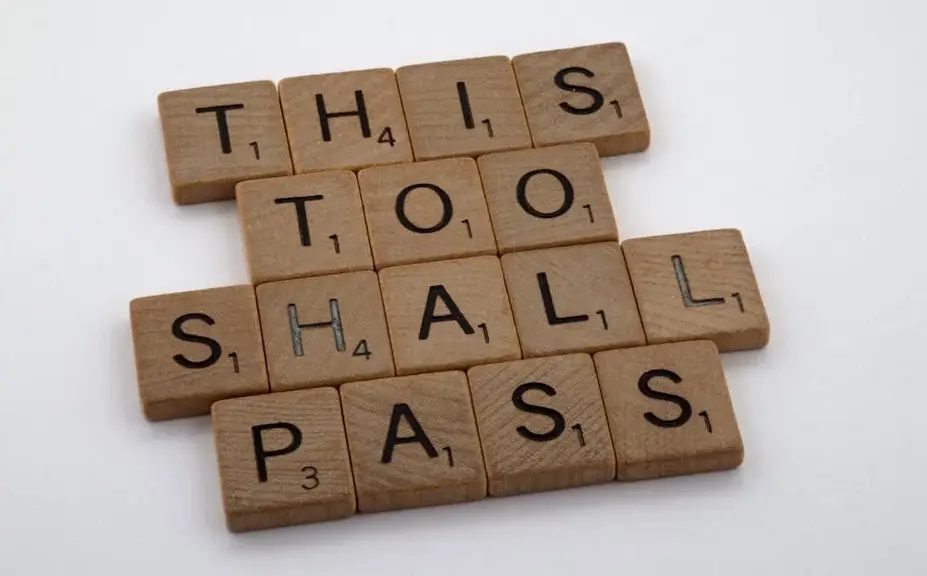The 1960s were a time of profound social change, but also a time when parents and grandparents passed down wisdom that had sustained previous generations. While we rolled our eyes at much of this advice as teenagers with transistor radios pressed to our ears, many of these pearls of wisdom have proven surprisingly resilient. As we navigate the complexities of the 21st century, these familiar phrases from our childhood still whisper to us, offering guidance when we least expect it.
1. “A penny saved is a penny earned”

Before credit cards became commonplace, this Benjamin Franklin adage was repeated in households across America, usually by parents who had lived through the Great Depression. Those glass piggy banks and savings accounts at the local bank were our first lessons in financial responsibility, often accompanied by a passbook where we proudly recorded our growing wealth. The satisfaction of watching small amounts accumulate taught us patience and the value of delayed gratification in ways that today’s instant digital transactions rarely do. Greenlight Card sorts out some myths about this saying, including exactly where it came from.
This mindset shaped an entire generation’s approach to money, instilling caution about debt and appreciation for incrementally building wealth. Many of us still feel a twinge of guilt when making an impulse purchase, hearing our father’s voice reminding us of this timeless advice. The basic principle—that careful stewardship of resources yields long-term benefits—remains as relevant in today’s complex financial landscape as it was when we counted our paper route earnings at the kitchen table.
2. “Always wear clean underwear in case you’re in an accident”

This peculiar piece of maternal wisdom wasn’t really about underwear but about maintaining dignity in unexpected circumstances. Our mothers, products of a more formal era, were teaching us that presentation matters and that self-respect begins with how you treat yourself, even in ways others might not immediately see. The underlying message was about being prepared for the unexpected—a life philosophy disguised as a quirky hygiene tip. Mummy to Twins Plus One relates to hearing this phrase and contemplating whether or not to teach it or not.
The advice seems quaint now, but it represented our parents’ genuine concern for our wellbeing and reputation in a time when appearances carried significant social weight. Many of us have found ourselves unconsciously passing this exact phrase to our own children, perpetuating a multi-generational concern about emergency room embarrassment. Beyond its literal meaning, this advice reminds us of a time when communities were smaller, reputations more fragile, and when mothers somehow believed that medical professionals would judge our character based on our undergarments.
3. “Sticks and stones may break my bones, but words will never hurt me”

This playground mantra was our parents’ attempt to armor us against the casual cruelty of childhood, encouraging resilience in the face of verbal taunts. Though well-intentioned, this advice simplified the complex reality of emotional pain that many of us experienced when faced with playground bullies or neighborhood troublemakers. The rhyme was supposed to give us a shield to deflect hurtful words, a way to stand tall when others tried to cut us down. Phrase Finder traces the origin of this empowering adage.
Looking back, we recognize this advice as both useful and flawed—teaching stoicism while perhaps underestimating the lasting impact of verbal abuse. Many of us have revised this wisdom for our own children, acknowledging that words do indeed have power while still encouraging emotional resilience. This tension between vulnerability and strength, between acknowledging hurt and transcending it, remains a balancing act we continue to navigate throughout our lives.
4. “Don’t sit so close to the TV—you’ll ruin your eyes”

The arrival of the television in American homes brought with it parental anxiety about this new technology’s effect on developing bodies. We would sprawl on our stomachs, chins propped on hands, eyes glued to Saturday morning cartoons until the inevitable parental intervention. The science behind this warning was questionable, but the sentiment—concern for our health and moderation in new entertainments—came from a place of genuine care.
Those bulky cathode-ray sets with their static electricity and mysterious inner workings seemed magical and potentially dangerous to our parents’ generation. While research has since debunked the myth about permanent eye damage, the underlying wisdom about moderation in screen time feels prophetic in today’s world of omnipresent digital devices. Many of us have caught ourselves issuing similar warnings about smartphones and tablets, continuing the tradition of cautioning against the hypnotic power of screens.
5. “Finish your dinner—children are starving in China/India/Africa”

This mealtime guilt trip was deployed by parents determined to prevent food waste and instill appreciation for privilege. The geographic location of the starving children varied by household, but the implied message was consistent: gratitude and awareness of our comparative good fortune. Although the logic connecting our clean plates to hungry children overseas was never explained, the emotional impact was effective—creating awareness of a wider world beyond our suburban neighborhoods.
This advice introduced many of us to concepts of global inequality long before we studied world affairs in school. While we may have responded with eye rolls or the cheeky offer to mail our vegetables overseas, the seed was planted for a more global consciousness. Many of us still feel that twinge of guilt when throwing away food, a small reminder of how these early lessons in privilege and waste continue to shape our worldview decades later.
6. “If you can’t say something nice, don’t say anything at all”

This advice, often attributed to Thumper in Disney’s “Bambi,” was a cornerstone of social instruction for children of the ’60s. Parents and teachers alike emphasized kindness and restraint in speech as fundamental to good character, creating a generation that understood the power of words long before “think before you post” became necessary advice. The directive encouraged a pause before speaking—a mental filter that many of us still apply automatically in social situations.
This guidance wasn’t just about being polite; it was about developing empathy and considering how our words might impact others. In a pre-internet era when conversations happened face-to-face, we learned to read reactions and adjust accordingly. While some might argue this advice created excessive politeness or suppression of honest criticism, many of us appreciate how it taught us to navigate relationships with care and consideration rather than brutal honesty.
7. “Money doesn’t grow on trees”

This practical reminder came whenever we asked for a new toy, an extra allowance, or the latest Beatles record. The phrase emphasized that resources were finite and had to be earned through hard work, not simply plucked from a magical money tree. Our parents, many shaped by Depression-era scarcity or post-war frugality, wanted to ensure we understood the value of a dollar and the effort required to earn it.
The advice fostered an appreciation for financial constraints and helped us develop decision-making skills about what was truly worth our limited resources. Many of us found ourselves working after-school jobs to save for desired items, learning patience and work ethic along the way. This fundamental understanding of economics—that resources are limited and choices involve trade-offs—has served many of us well throughout careers, homeownership, and raising our own families.
8. “Don’t make me turn this car around!”

The family road trip, a staple of 1960s American life, inevitably included this parental threat issued from the front seat in response to backseat bickering. Long before DVD players and smartphones, we entertained ourselves with license plate games, I Spy, and occasionally tormenting our siblings during those endless drives to national parks or grandparents’ homes. The warning carried weight because we knew our parents would indeed follow through, potentially ruining carefully laid vacation plans.
This phrase represented clear boundary-setting and consequences in an era when parental authority was rarely questioned. The threat worked because it held us accountable not just to our parents but to the family unit as a whole—our misbehavior could spoil everyone’s good time. Many of us have found these exact words coming out of our own mouths decades later, part of the mysterious transformation where we somehow became our parents during moments of stress.
9. “Idle hands are the devil’s workshop”

This biblical proverb warned against laziness and emphasized the moral virtue of staying busy and productive. Our grandmothers would mutter this while putting us to work snapping beans or our fathers would invoke it when recruiting help with yard work on Saturday mornings. The philosophy behind it—that meaningful activity prevents mischief—shaped how many families structured children’s time, filling schedules with chores, sports, and constructive hobbies.
This advice reflected the strong work ethic and practical mindset of previous generations who viewed idleness as both a personal failing and a potential path to trouble. For many of us, this early conditioning created lifelong habits of industriousness and discomfort with inactivity that we’ve carried well into retirement. The modern mindfulness movement, with its emphasis on simply “being” rather than constantly “doing,” represents a counterbalance to this deeply ingrained belief that our value comes from productivity.
10. “Don’t swim for an hour after eating”

This summertime warning was issued at pools and beaches across America, often while parents frantically applied Coppertone to squirming children eager to return to the water. The science behind this advice has since been debunked, but the concern was genuine—adults in the ’60s truly believed that digestive processes diverted blood from limbs, increasing cramp risk and potentially leading to drowning. This advice represented the protective instinct of a generation parenting without the instant access to medical information we now take for granted.
Many of us spent those mandatory waiting periods lying on beach towels, watching the minute hand on our watches, convinced our parents were needlessly prolonging our agony. The enforced pause actually created space for conversation, sandcastle building, and other non-swimming interactions that enriched our summer experiences. This particular piece of advice reminds us how parenting wisdom evolves across generations, even as the underlying concern for children’s safety remains constant.
11. “Stand up straight—don’t slouch!”

Posture was paramount in an era when deportment still reflected character, and our parents’ generation believed that carrying oneself properly indicated self-respect and good breeding. We rolled our eyes when mothers placed books on our heads or when teachers reminded girls to “sit like ladies,” but these postural corrections were part of a larger system of physical discipline and awareness. The military bearing of many fathers who had served in WWII or Korea influenced family expectations about posture, creating an association between straight spines and strength of character.
This advice has proven medically sound, even as the social motivations behind it have faded away. Many of us now visit chiropractors or yoga studios to correct the damage done by decades of hunching over desks, appreciating too late the wisdom in our parents’ nagging. The current epidemic of “text neck” among younger generations has some of us biting our tongues to avoid becoming the posture police ourselves, understanding now the genuine concern that prompted our parents’ constant corrections.
12. “Be home when the street lights come on”

This simple boundary gave children of the ’60s remarkable freedom by today’s standards, allowing us to roam neighborhoods with the understanding that darkness signaled the end of play. The consistent, non-negotiable curfew created security within freedom—we could explore, create, and socialize independently, knowing exactly when we needed to return home. These long, unstructured afternoons fostered creativity and social skills as we organized our own games and resolved conflicts without adult intervention.
The street lights provided an objective, universal signal that all neighborhood children understood and generally respected. Parents didn’t need to check watches or make phone calls; nature itself, in the form of lengthening shadows and illuminating lamps, called us home. This advice captures the balance of protection and independence that characterized many childhoods in the ’60s, before organized activities and safety concerns began limiting children’s autonomous play.
13. “Don’t talk to strangers”

This directive—perhaps the most universal advice of our childhood—reflected growing concerns about child safety in an increasingly mobile society. The late ’50s and ’60s saw increasing awareness of risks to children, fueled by high-profile cases and growing media coverage of crimes against children. This simple rule was meant to create a clear boundary between the safe world of known adults and the potentially dangerous world of unknown ones.
The advice created a wariness that many of us still carry, a tendency to carefully evaluate unfamiliar people before engaging. While necessary for safety, this caution also marked a cultural shift from the more communal child-rearing of previous generations, when neighborhoods functioned as extended families and children were considered the collective responsibility of all adults. Many of us have struggled to balance this deeply ingrained caution with the desire to foster community connection and neighborliness in our adult lives.
14. “This too shall pass”

When facing teenage heartbreaks, social rejections, or academic disappointments, this phrase offered perspective and the promise that pain was temporary. Our parents and grandparents, having lived through depressions and wars, understood the transient nature of both suffering and joy in ways we couldn’t yet comprehend. The advice encouraged resilience without dismissing our feelings, acknowledging difficulty while gently placing it in a larger context.
This wisdom has proven perhaps the most enduring of all, becoming more meaningful as we’ve experienced life’s inevitable cycles of challenge and respite. Many of us have whispered these words to ourselves during health scares, career setbacks, and family crises, finding comfort in their timeless truth. The phrase reminds us of our elders’ emotional intelligence and how they prepared us for life’s unpredictability with simple phrases that contained profound philosophical depth.
The advice that echoed through wood-paneled living rooms and around Formica kitchen tables has proven remarkably durable, transcending the specific cultural context of the 1960s. While we’ve discarded some outdated notions and refined others, these core principles about saving money, showing kindness, taking responsibility, and maintaining perspective continue to guide us. Perhaps the greatest gift our parents and grandparents gave us wasn’t just the advice itself, but the values embedded within it—values we’ve passed down, sometimes word for word, to subsequent generations.


